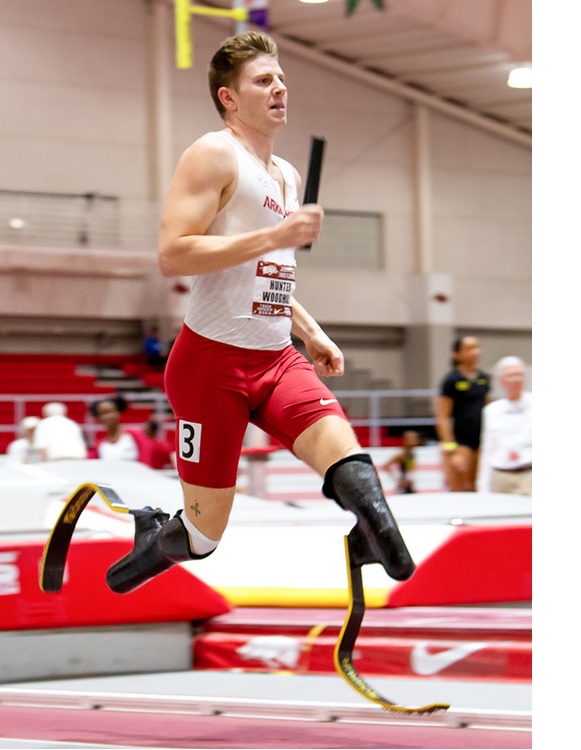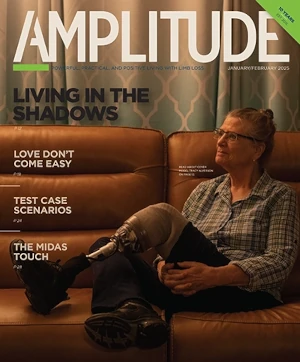
When we caught up with Hunter Woodhall in January, he was still waiting for the NCAA to let him resume competing. The success of his business venture, Giant Hoodies, had put him at odds with the NCAA’s eligibility rules, leaving Woodhall sidelined while his University of Arkansas teammates got the 2021 indoor track season off the ground.
A couple of weeks after our conversation, Woodhall learned the terms of reinstatement. Ugh.
“College athletes aren’t allowed to make money or support themselves,” he told Amplitude. “So even if [the income] is not related to the sport you’re playing or being an athlete, the NCAA can still shut it down. They weren’t happy with my business and the amount of money it was making, so they gave me the option to pay back a pretty large sum of money, and then scrub all of my social media channels of posts I’ve ever made having to do with running track, being an athlete, or attending the University of Arkansas.”
In essence, Woodhall would have to give up his voice if he wanted to keep using his legs at the intercollegiate level—and that was a ridiculous ask. “Having a platform has always been the idea in everything I’ve done,” he says. “It’s always been about doing something positive.”
The high price of staying NCAA-eligible left Woodhall with no choice but to activate Plan B: turning pro. He’d already teed up that option while his case was under review; within days of the NCAA’s final ruling, Woodhall was in the starting blocks for the 400 meter race in the American Track League’s meet in Fayetteville, Arkansas.
It was his first race in more than 11 months, and the rust showed: Woodhall clocked in at 47.65 seconds, a quarter-second slower than his personal best on an indoor track and almost a full second slower than his silver-medal Rio time. But after so much time away from his sport, the results mattered less than the chance to get back into the rhythm of competition.
He leaves with nothing but gratitude toward Arkansas, which made Woodhall the first bilateral amputee ever to earn a Division 1 track and field scholarship. “They have fought for me throughout this entire process and supported me every step of the way,” he wrote on Instagram. “I will continue to train in Fayetteville and gear up for Tokyo 2021.” As for the NCAA, he added: “There is a lot to be said about the way they treat the athletes that make their organization what it is. There needs to be change and I will bring to light the major flaws that they carry.”
Freed of the NCAA’s constraints, Woodhall immediately picked up sponsorships from Össur and Discovery Plus, and he’s got several other deals in the works. He appeared in People Magazine and on Good Morning America. Liam Fayle of HAWI Management will serve as Woodhall’s track and field agent, with Scale Management and A3 Artists Agency handling endorsements and social media. He’ll also lean heavily on the experience and wisdom of longtime LA-area track coach Ty Davis, father of Woodhall’s long-time squeeze Tara Davis. Of the latter, Woodhall told us: “It’s good to have somebody level-headed with you who understands the system and has your best interests at heart.”
As far as his preparations for the Paralympics, “Nothing has changed. My training routine is the same as before. Same coach, same team.”
And same dreams: winning Paralympic gold, and wielding influence to make the world a better place.
Read more about Hunter Woodhall at Amplitude:
Road to Tokyo: Hunter Woodhall Gets Back to Business
Road to Tokyo: NCAA Indoor Track Championships
Road to Tokyo: Hunter Woodhall’s New Legs
Hunter & Tara: The Coolest Couple on YouTube



